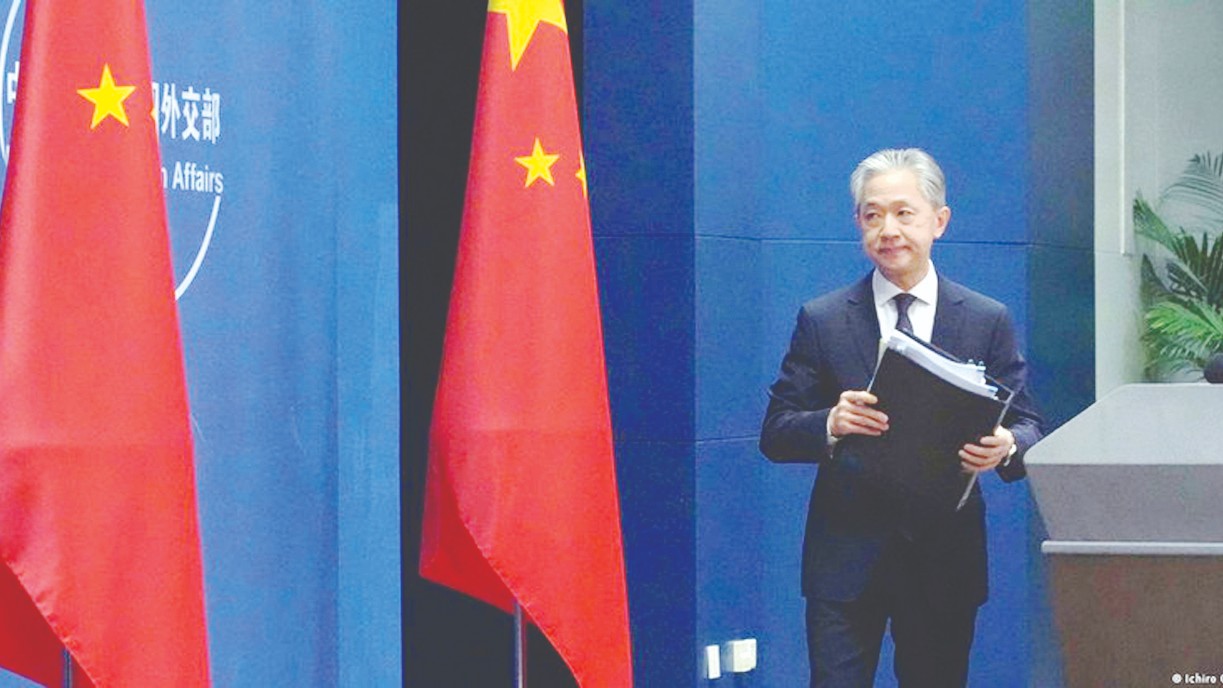Mediator for Ukraine: China’s plan for peace thin on solutions
For a long time, China has been reluctant to take an active role in the conflict, presenting itself as a neutral power and ignoring calls to put pressure on Russia. It is understandable since China is one of the main beneficiaries of the sanctions against Russia

During last week’s Munich Security Conference (MSC), senior Chinese diplomat Wang Yi announced Beijing’s peace plan to resolve the war in Ukraine through political means. In a 12-point statement released on Friday morning, the peace initiative includes criticism of unilateral sanctions, calls to resume peace talks and reduce strategic risks associated with nuclear weapons. For a long time, China has been reluctant to take an active role in the conflict, presenting itself as a neutral power and ignoring calls to put pressure on Russia. It is understandable since China is one of the main beneficiaries of the sanctions against Russia. Due to Russia’s international isolation, China has gained strong leverage over Russian energy supplies and their prices. In 2022, Chinese exports to Russia increased by 12.8% while imports, including natural resources, grew 43.4%.
Nevertheless, the negative impacts of the war are slowly outweighing the short-term gains. US Secretary of State Antony Blinken alleged that China was considering providing Russia with lethal arms. The alleged support to Russia has resulted in tighter export controls and restrictions on investments from the West. Suggestions that what is occurring in Ukraine could be repeated by China with regards to Taiwan is an enduring concern in the West, affecting relations with the US and EU, Beijing’s largest trading partners.
“Russia has done Beijing very few favors by waking the world up to this threat before Beijing was ever ready to undertake a potential invasion of Taiwan,” Blake Herzinger, a nonresident fellow at the American Enterprise Institute focusing on Indo-Pacific defense policy, told DW.
Until the release of China’s 12-point proposal on the first anniversary of the start of the war, the details of the plan have been kept secret, even from Ukraine and Russia. Wang Yi introduced the key points to the Ukrainian foreign minister Dmytro Kuleba in Munich. However, neither Kuleba nor the president of Ukraine Volodymyr Zelenskyy saw the text of the proposal. After the conference in Munich, Wang Yi visited Russia and met several top-ranking officials, as well as Russian President Vladimir Putin. Although Wang Yi was in Russia only two days before the release, Moscow reported that there were no talks about the so-called “Political Settlement of the Ukraine Crisis.”
In the peace initiative, the main focus was on sovereignty and territorial integrity. However, China does not specify how this issue, fundamental to both Russia and Ukraine, should be addressed. “China pays lip service to territorial integrity, but hasn’t called on Russia to stop its illegal war of conquest and withdraw its troops,” Thorsten Benner, director of the Global Public Policy Institute said.
Contrary to many expectations, the plan also did not call to halt arms supplies to Ukraine. The paper highlights dialogue and negotiations as the only viable solution to the Ukraine crisis. Currently, the talks between Russia and Ukraine have been reduced to the exchange of prisoners and rare informal contacts.
“To be successful, peace mediation needs the willingness of conflicting parties,” Artyom Lukin, associate professor at Far Eastern Federal University, told DW.
China’s role as a mediator in the conflict seems dubious since it appears not an impartial actor. Over the past year, Beijing has intensified political, military, and economic ties with Moscow. In the 12-point proposal, China once again opposes “unilateral sanctions unauthorized by the UN Security Council.”
This article was provided by Deutsche Welle
Visit news.dtnext.in to explore our interactive epaper!
Download the DT Next app for more exciting features!
Click here for iOS
Click here for Android



